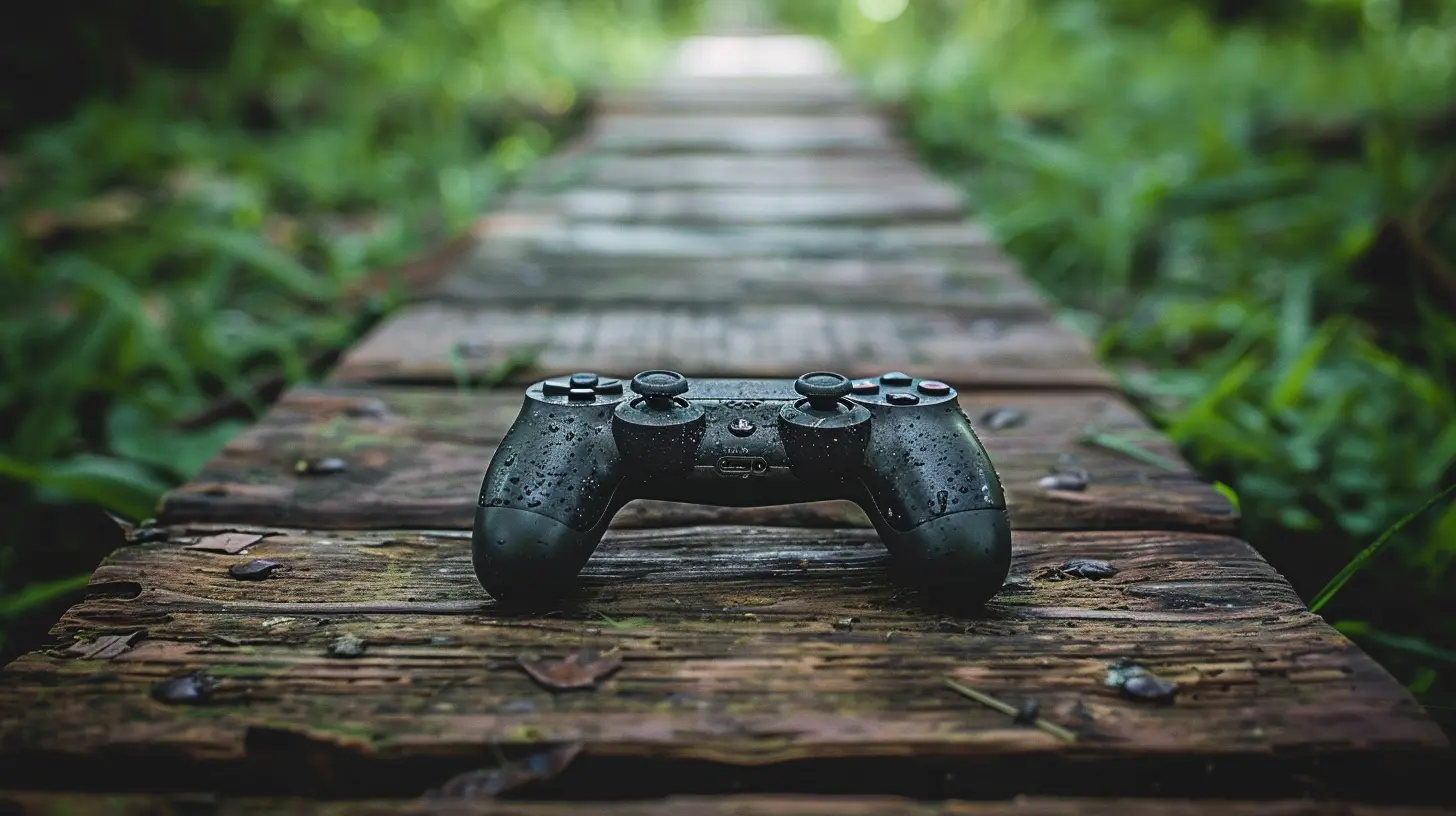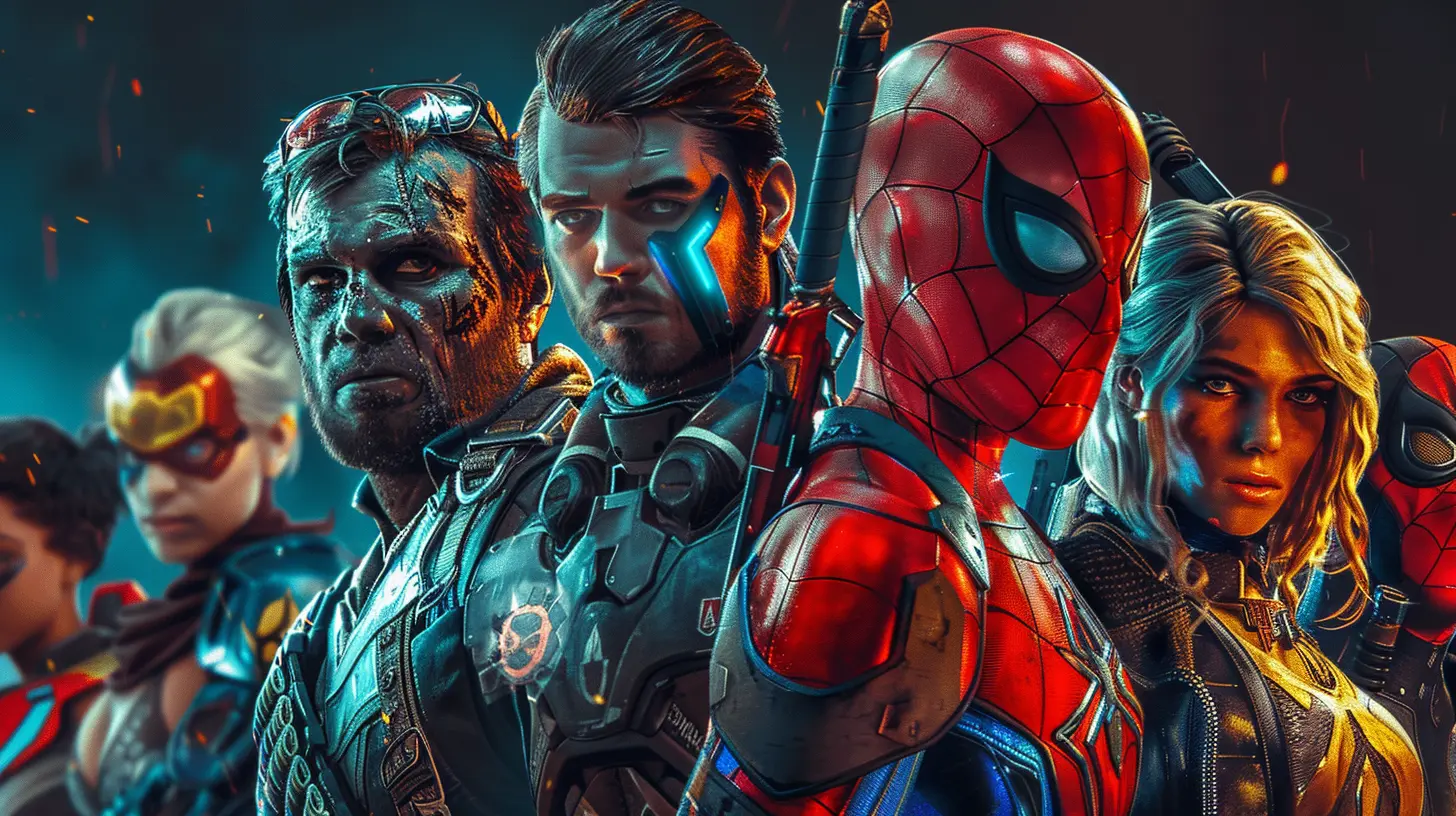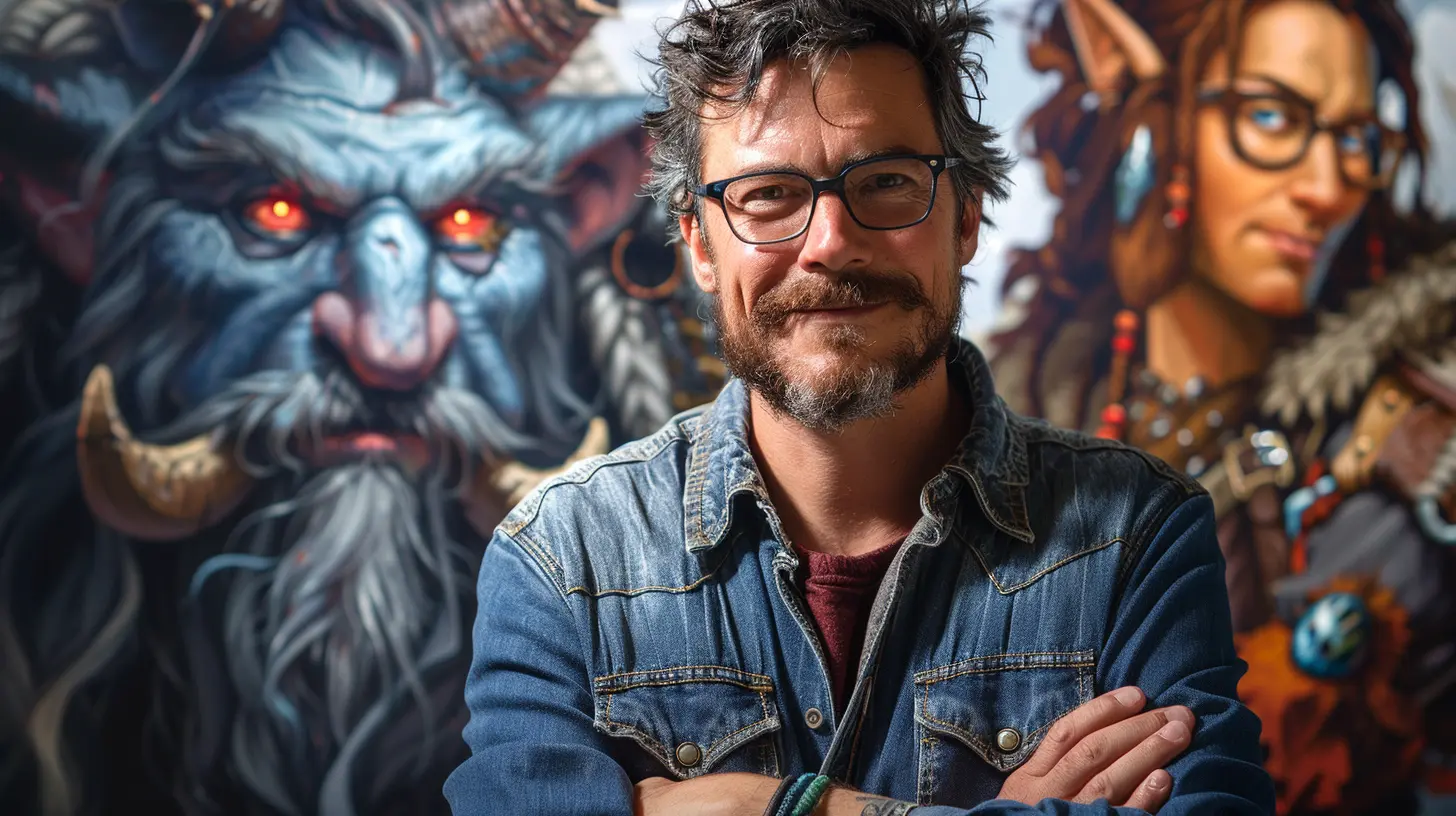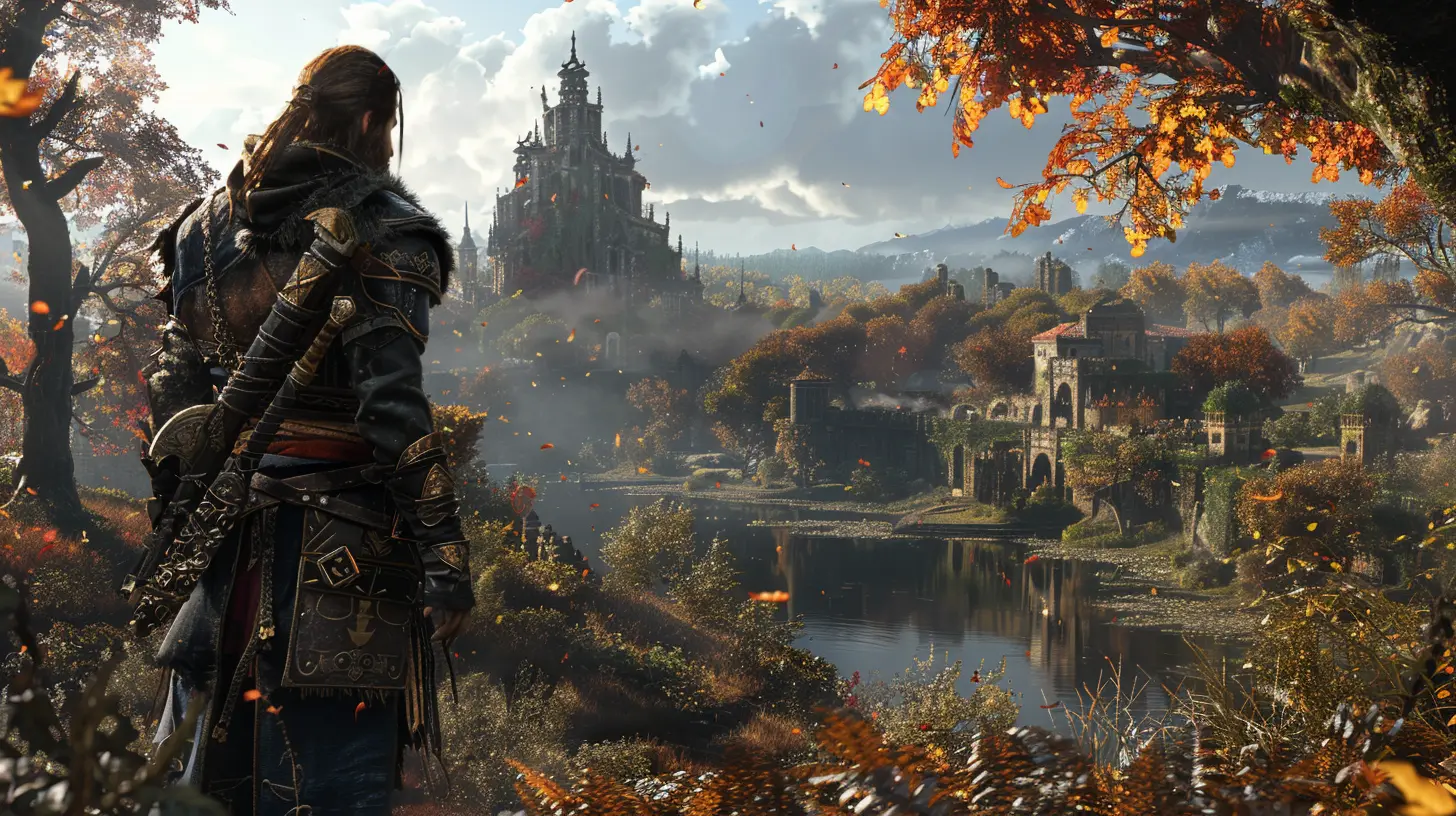Developers Speak Out About Crunch Culture in the Gaming Industry
1 December 2024
If you've ever hung out in gaming forums or read about the behind-the-scenes work of making your favorite video games, you’ve probably come across the term “crunch culture.” It’s like the Voldemort of the gaming industry—uncomfortable to talk about but impossible to ignore. For years, crunch culture has been a dark cloud hanging over game development. And let’s be real, it’s not just a workplace issue; it changes how we think about the games we love.
But what exactly is crunch culture? Why does it exist, and more importantly, what are industry insiders saying about it? Here's everything you need to know, straight from the mouths (or tweets?) of developers who are finally speaking out. 
What Is Crunch Culture?
Picture this: you’re working on a big project at your job, but you’re behind schedule. Instead of adjusting the timeline, you’re told to work nights, weekends, and even holidays to meet the deadline. That’s crunch culture in a nutshell—an intense, workaholic mentality that’s all about hitting impossible deadlines, no matter the cost.In the gaming world, crunch is usually tied to the development of a game nearing its release date. Developers are expected to put in ungodly hours—often 60, 70, or even 100 hours a week—to polish the game. It’s like running a marathon the day after you’ve already run a full sprint. Exhausting, right? 
Why Does Crunch Culture Happen?
If you’ve ever tried to tackle a group project in high school, you know what happens when deadlines are tight and stakes are high—someone ends up pulling an all-nighter. The same thing happens in game development, but on a much larger scale.1. Unrealistic Timelines
One of the biggest culprits behind crunch is poor planning. Studios often set aggressive release schedules to meet market demands or financial goals. But guess what? Developing a high-quality game takes time. When deadlines are too tight, crunch becomes the “solution.”2. Pressure from Publishers
Publishers—those who fund and distribute games—often push developers to hit specific release windows (like the holiday season) to maximize profits. It’s the gaming equivalent of trying to hit Black Friday sales—you don’t miss that chance to cash in.3. Passion Misused
Game developers are some of the most passionate people you’ll meet. They love what they do, and honestly, most of them would happily spend extra time perfecting their work. But when passion turns into exploitation, it’s a problem. Studios take advantage of that passion, expecting developers to work around the clock “for the love of the game.”
What Are Developers Saying About Crunch?
Now, here’s where things get heated. For years, crunch culture was something whispered about in break rooms or vented online anonymously. But times are changing, and developers are finally using their platforms to call out the industry.1. “It’s Not Sustainable”
Many developers argue that crunch isn’t just harmful—it’s unsustainable. A viral Reddit thread from a former game dev summed it up perfectly: “Crunch culture is a death spiral. It doesn’t fix the root of the problem; it just delays the inevitable.”Burnout is real, and when talented developers leave the industry entirely because they’re overworked, everyone loses. Studios are left scrambling, projects suffer, and gamers end up with buggy, half-baked games.
2. “It’s Killing Creativity”
Ever tried to be creative when you’re running on three hours of sleep and a gallon of coffee? Developers say crunch stifles innovation. When you’re forced to churn out work at lightning speed, there’s no room to think outside the box or refine your ideas.In a 2023 interview, an anonymous developer from a AAA studio said, “Crunch has a way of turning what should be exciting into something people dread. It’s hard to be creative when all you can think about is getting through the day.”
3. “We’re People, Not Machines”
It’s easy to forget that behind every game is a team of real people. They have families, friends, and lives outside of work. But crunch reduces them to cogs in a machine, where the only thing that matters is meeting the deadline. And developers are fed up with being treated like this.A tweet from an indie developer went viral recently: “No game is worth sacrificing your health for. Period.” It sparked a wave of support from others in the industry, many of whom shared their own horror stories. 
The Fallout of Crunch Culture
Okay, so crunch sounds like a nightmare for developers. But what about for gamers? Surely crunch means we get better games faster, right? Not so fast. Crunch culture doesn’t just impact developers—it trickles down to the games themselves, and not in a good way.1. Buggy, Rushed Releases
Remember the fiasco with Cyberpunk 2077? That game is practically the poster child for what happens when crunch goes wrong. Developers worked around the clock to hit the release date, but the game launched with so many bugs it became a meme.2. Delayed Content
Ironically, crunch doesn’t always mean games are finished on time. Sometimes, developers are so burned out they can’t keep up with post-launch updates, leaving players waiting for patches, DLC, or expansions.3. Moral Dilemma
As gamers, we’re left with a sticky ethical question: Is it okay to support games created under these conditions? It’s like loving a band but finding out they treat their roadies like garbage. It’s complicated.Studios Taking a Stand
Not everyone in the gaming industry is onboard with crunch culture, though. A few studios are stepping up and proving that you can make amazing games without overworking your team.1. Insomniac Games
Known for hits like Spider-Man and Ratchet & Clank, Insomniac has been vocal about avoiding crunch. Instead of overloading their team, they focus on realistic timelines and healthy work-life balance. And guess what? Their games still rock.2. CD Projekt Red (Eventually)
Yes, they were responsible for the Cyberpunk 2077 debacle, but CD Projekt Red seems to have learned from their mistakes. In 2021, they announced internal reforms to eliminate mandatory crunch. Better late than never, right?3. Supergiant Games
This indie studio behind Hades and Bastion is proof that crunch-free development is possible. Their team prioritizes flexibility, collaboration, and respect for everyone’s time.So, What’s the Solution?
Let’s face it—crunch didn’t happen overnight, and it’s not going away anytime soon. But there are steps the gaming industry can take to fix it.1. Honest Deadlines
Studios need to stop promising the impossible. If a game needs more time to be great, give it more time. Gamers are surprisingly patient when studios are transparent—just look at the excitement around delayed but polished releases like Zelda: Tears of the Kingdom.2. Unionization
One of the biggest conversations happening right now is the push for game developers to unionize. A union could set industry-wide standards for working hours, pay, and conditions, making crunch the rare exception rather than the rule.3. Gamers Holding Studios Accountable
Let’s not pretend gamers don’t play a part in this. When we demand faster releases or boycott delays, we’re fueling the problem. As a community, we need to prioritize quality over speed—and maybe cut developers some slack.Final Thoughts
Crunch culture is one of those topics that’s messy and uncomfortable, but it’s a conversation worth having. Game development is a labor of love, but that doesn’t mean developers should sacrifice their health, creativity, and happiness to keep us entertained. The more we talk about crunch, the closer we get to an industry that values people as much as profits.So the next time you’re sitting down to play a new release, take a second to think about the hard work behind the scenes. And remember: no game is worth breaking someone’s back over.
all images in this post were generated using AI tools
Category:
Gaming NewsAuthor:

Madeleine McCaffrey
Discussion
rate this article
13 comments
Uzi Meyers
Crunch culture harms creativity and well-being; prioritizing balance fosters healthier games and happier developers.
February 1, 2025 at 3:36 PM

Madeleine McCaffrey
Thank you for highlighting this important issue! Balancing work and well-being is crucial for fostering creativity and healthier work environments in the gaming industry.
Marley Morales
Crunch culture in gaming is like a double-edged sword: it sharpens creativity but dulls morale. Until developers are valued more than deadlines, we’ll keep spinning in this exhausting cycle. Time for change, not just talk!
January 27, 2025 at 6:05 PM

Madeleine McCaffrey
Absolutely agree! Prioritizing developer well-being is crucial for both creativity and sustainability in the industry. Change is essential for a healthier work environment.
Elijah McAdoo
Great read! It's essential to prioritize developer well-being to foster creativity and innovation. Addressing crunch culture can lead to better games and a healthier industry overall. Keep the conversation going!
January 23, 2025 at 3:37 AM

Madeleine McCaffrey
Thank you! I completely agree—prioritizing developer well-being is key to fostering creativity and innovation. Let's keep pushing for positive change in the industry!
Mackenzie Bishop
Crunch culture undermines creativity and well-being in game development. Sustainable practices and prioritizing mental health are essential for fostering innovation and ensuring a thriving industry.
January 19, 2025 at 5:19 AM

Madeleine McCaffrey
Absolutely! Prioritizing sustainable practices and mental health is crucial for fostering creativity and innovation in game development. It's time to shift the focus from crunch to well-being.
Atlas McGill
Creativity shouldn't thrive on exhaustion.
January 16, 2025 at 3:39 AM

Madeleine McCaffrey
I completely agree! Creativity flourishes in a healthy environment, not under pressure and fatigue. Prioritizing well-being is essential for innovation.
Meredith Mullen
Truth hides in shadows.
January 12, 2025 at 4:34 PM

Madeleine McCaffrey
Indeed, shedding light on these issues is crucial for change.
Finnegan Yates
Ah, crunch culture! Because who wouldn’t want to sacrifice sleep, sanity, and a social life just to make sure that the next game has slightly shinier graphics? Nothing says “fun” like working 80 hours a week to meet an unrealistic deadline. Cheers to that!
January 6, 2025 at 5:03 PM

Madeleine McCaffrey
Absolutely, your frustrations highlight a critical issue in the industry. Crunch culture not only impacts developers' well-being but can ultimately affect the quality of the games we create. It's time for systemic change.
Luma O'Neal
Crunch culture in gaming: where 'just one more level' turns into 'just one more sleepless night!' Developers deserve more than pizza and energy drinks; how about some sleep and a side of sanity? Let’s level up their work-life balance, not just the games!
January 3, 2025 at 4:17 PM

Madeleine McCaffrey
Absolutely! Prioritizing developers' well-being is essential for creativity and sustainability in the gaming industry. They deserve healthy work environments, not just deadlines.
Bellamy McConnell
It's essential for developers to address crunch culture, as it impacts mental health and creativity. Sustainable work environments lead to better games and happier teams.
December 29, 2024 at 4:47 AM

Madeleine McCaffrey
Absolutely agree! Prioritizing sustainable work environments not only enhances creativity but also fosters the well-being of developers, ultimately leading to better games.
Kai McMahon
Thank you for addressing such an important issue in the gaming industry. It's crucial to prioritize the well-being of developers and foster a healthy work environment. Open dialogue about crunch culture is a significant step toward positive change. Looking forward to more insights!
December 21, 2024 at 5:23 AM

Madeleine McCaffrey
Thank you for your support! It's vital we continue this conversation to promote a healthier gaming industry.
Calyx Cox
It's crucial for developers to address crunch culture. Prioritizing well-being can lead to better game quality and creativity, fostering a healthier environment for both creators and players alike.
December 15, 2024 at 4:11 AM

Madeleine McCaffrey
Thank you for highlighting the importance of prioritizing well-being in game development. Addressing crunch culture is essential for fostering creativity and delivering higher-quality games.
Rhett Kirkpatrick
This article sheds light on the pervasive issue of crunch culture in gaming, emphasizing its detrimental effects on developers' well-being and creativity. It’s crucial for the industry to prioritize sustainable practices for healthier work environments.
December 6, 2024 at 6:04 PM

Madeleine McCaffrey
Thank you for your insights! Prioritizing sustainable practices is essential for fostering a healthier work environment and supporting developer well-being.
Elena Ortiz
It's about time developers addressed crunch culture. A healthier work environment fosters creativity and innovation. Let’s prioritize sustainable practices over unrealistic deadlines for the future of gaming. Change is overdue!
December 6, 2024 at 2:31 AM

Madeleine McCaffrey
Thank you for your insightful comment! Prioritizing a healthier work environment is indeed crucial for fostering creativity and innovation in the gaming industry. Sustainable practices can lead to better outcomes for both developers and players.
MORE POSTS

How to Avoid Buyer’s Remorse After an In-Game Purchase

Best Third-Party Games You Can Play on Xbox Series X

The Evolution of Legendary Items in MMOs

From Trenches to Space: The Expanding World of War Games

Unlocking Hidden Abilities: Legendary Items with Secret Powers

Exploring the Secretive World of Gaming Leaks and Rumors

Why Teens Are Flocking to Battle Royale Games

The Impact of Player Physics in Modern Sports Games

Crafting the Perfect RPG Inventory: A Guide to Balance and Fun